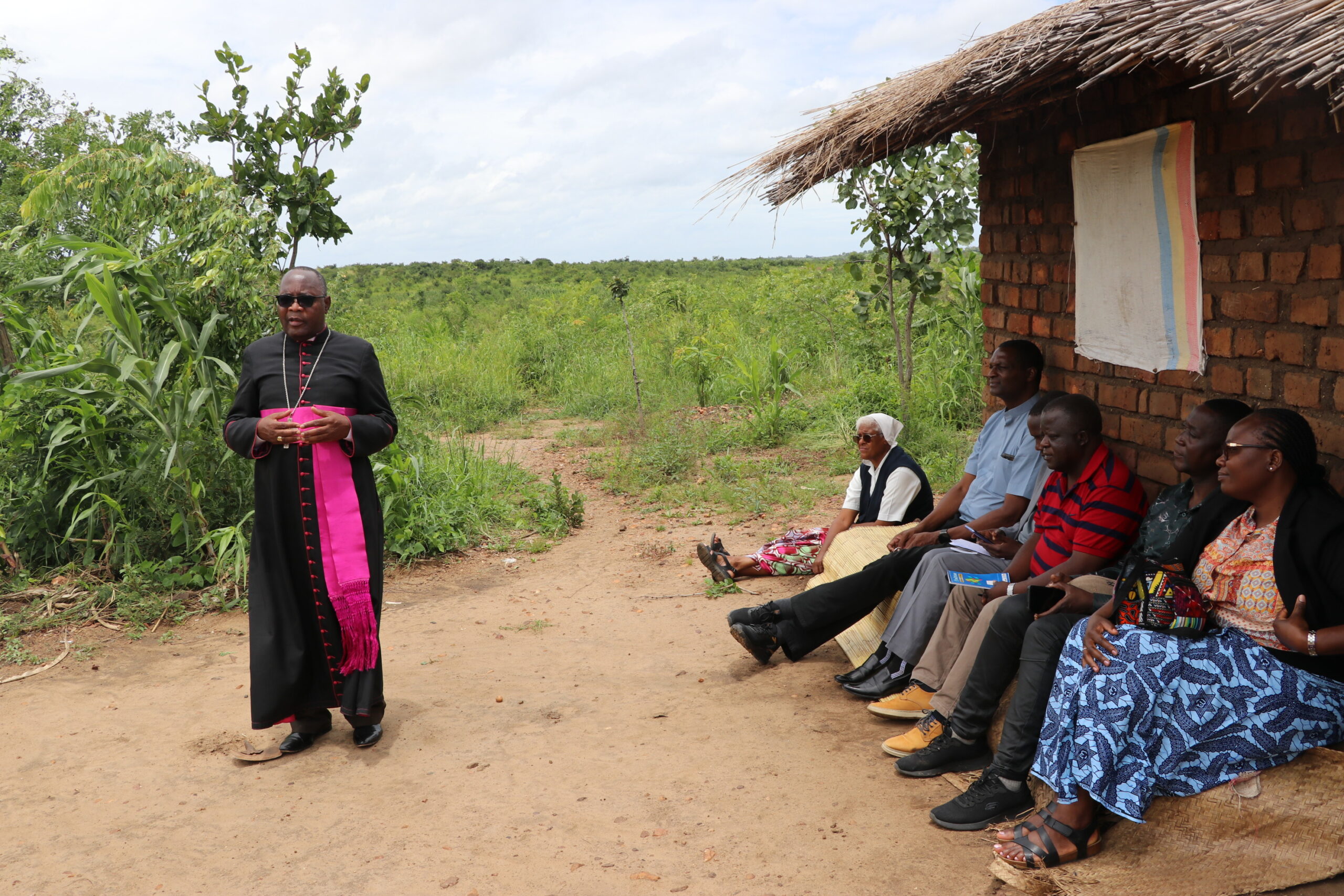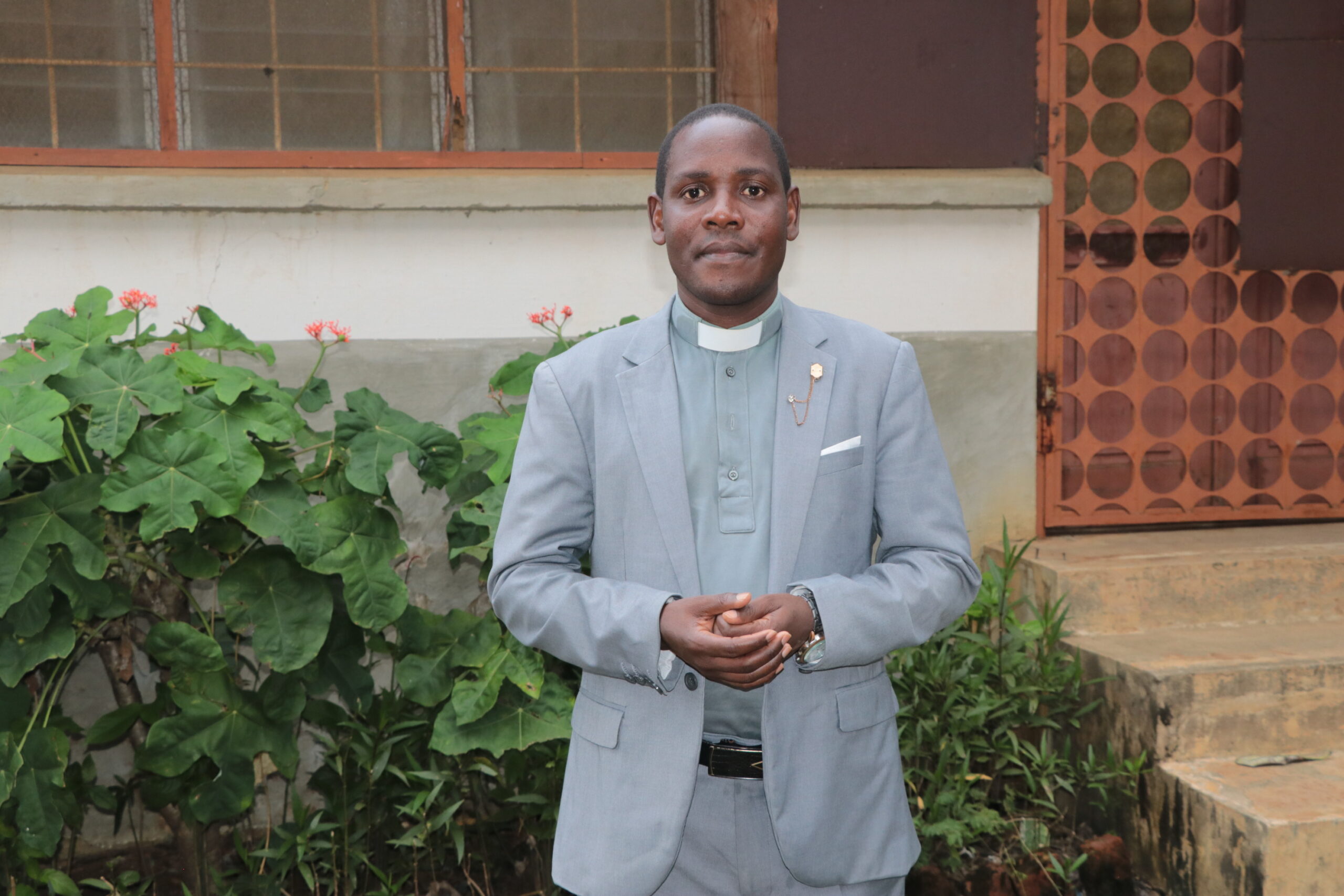AMECEA: Assessment for Pilot-Reintegration in Malawi Attests Possibility of Child Care Reform

Bishop Montfort Stima during the field visit in Kankao
Sr. Jecinter Antoinette Okoth, FSSA
At Philipo Mbewe Village in Kankao Parish, Mangochi Diocese in Malawi, located in the Southern region of the country, a team of stakeholders from the Church and community visited a home that seemed isolated and covered in lush green grass, to assess the possibility of reintegrating a child from an institution.
From the entrance, as over 20 people arrived at Viola’s home (not her real name), one could feel the tranquil ambiance as the middle-aged woman was preparing lunch just on the veranda of the house for her school-age children who aren’t schooling yet.
The team comprised of the Local Ordinary of the Diocese Bishop Montfort Stima, the local chiefs led by a representative of Traditional Authority (TA) Chanthunya, community and government’s Social Welfare representative, Poverelle Sisters working in Chimwemwe children’s home, the parish priest of Kankao parish, and other clerics from the Magochi Diocese, representatives from the Association of Member Episcopal Conferences in Eastern Africa (AMECEA), Association of Sisterhoods in Kenya, (AOSK), and Association of Women in Religious Institutes of Malawi (AWRIM).
During the assessment on Thursday, February 29, as a selected group from the team conversant with the Chichewa language interrogated Viola the aunt of the child to be reintegrated, on her preparedness to receive an additional mouth-to-feed on top of her four children, some members of the group sat scattered within the compound discussing the significance of child care reform and the as they brainstorm on way forward for the child to be reintegrated from Chimwemwe children’s home.

While addressing the entire group after the interrogation process, the Local Ordinary of Magochi Diocese Bishop Stima appreciated the care reform initiative and assured Viola’s family they were not alone in this journey.
“Now that we have a program initiated in the region to promote family and alternative care approaches and reintegration of institutionalized children, I am happy that children will be brought up in homes and raised by the community,” said Bishop Stima who sat patiently on the veranda with the group who visited the family of Viola.
He added, “I am grateful for this collaboration as the Church complements the government’s program on child care.”
The Traditional Authority (TA) representative Moses Skello who was part of the group that visited Viola’s family, extended his appreciation to the team and promised continued collaboration and support to ensure that care reform works in Malawi.
According to the TA, “This is the way to go” and the program is a good opportunity for the integral growth of children.
Even though the economic situation in Viola’s home which had two small thatched houses with minimal resources did not seem appropriate for the re-integration of the child, the willingness of the aunt and the collaboration and support assured from stakeholders is a great milestone that amidst the poverty challenges that could be vividly seen, the child in the long run will be able to find a place to identify as a home.
The care reform is an initiative promoting holistic care of children in families or foster homes under a project dabbed Catholic Care for the Children (CCC) and is currently being implemented in four AMECEA countries: Kenya, Uganda, Malawi, and Zambia.


